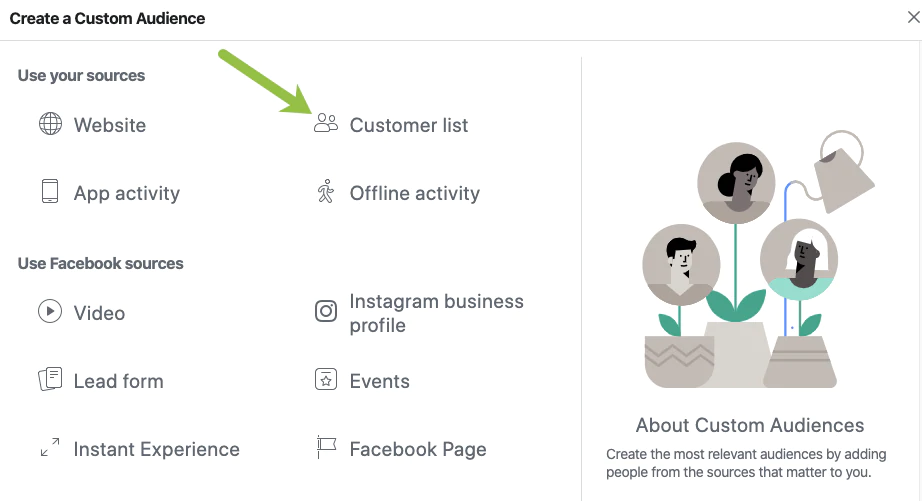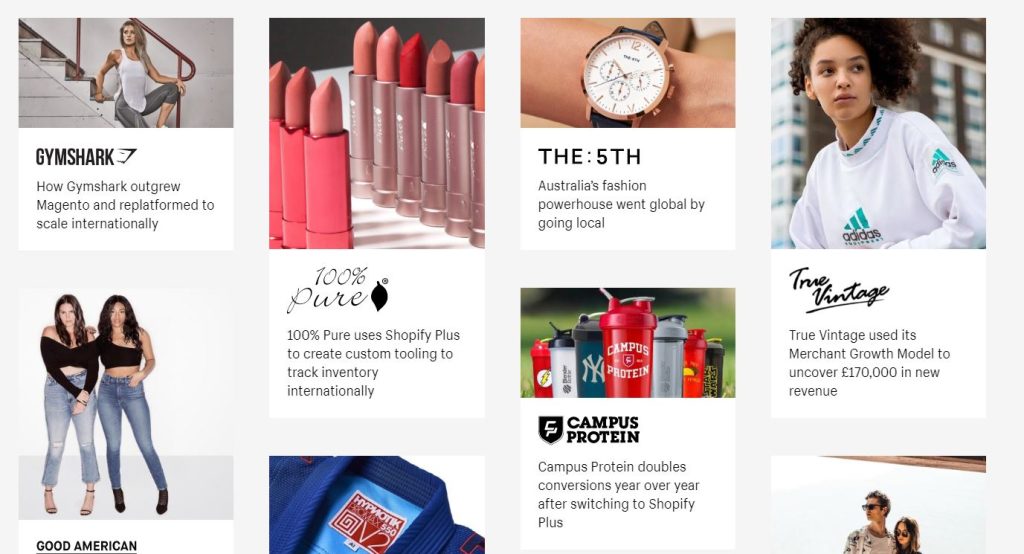Table of Contents:
- Introduction
- Shopify could build its own advertising network
- Machine Learning
- Dynamic Ad targetting
- Custom audiences
Introducing Shopify Audiences can help you identify customers who are most interested in your products. You can target these customers with ad campaigns based on their interests, making it convenient for reaching a specific group of people. Shopify assures that the data gathered from Facebook and Instagram is deleted once the export is complete.

Shopify could build its own advertising network
Shopify has several potential avenues to build its own advertising network, but currently, it does not have a native advertising platform. Unlike Amazon, which is a leader in the ad space, Shopify is still developing in this area. Both companies seek new revenue streams and diversification, competing for customer acquisition while sharing similar ambitions.
Shopify is focusing on building a distribution ecosystem to attract third-party sellers. Beyond creating a unified marketplace, it has partnered with Facebook, Google, and Walmart to promote its merchants and increase conversions. Unlike Amazon’s high-profile approach, Shopify adopts a low-profile strategy, collaborating with major ad companies like Google and Facebook to provide its merchants with enhanced functionality and eCommerce capabilities.
While this might seem like an unwelcome move, it does provide a platform for affiliates to promote products and services. A proprietary “content and commerce” affiliate network would allow Shopify to act as a sales broker and traffic broker. Shopify has already announced its first affiliate network partner – social video app TikTok. By building an affiliate network, merchants can create promotions directly from the backend of their software. Tiktok creators will earn commissions from Shopify merchants.
With this technology, Shopify is in a better position to sell its products than Amazon. Its direct-to-consumer model has the benefit of giving the merchant a direct connection to the customer. The startup is also targeting consumers who are interested in the products they sell. This could increase revenue for Shopify by several times. If Shopify can successfully create and launch a look-alike audience, it could become the marketplace. Get in touch with PROS Shopify development company.
A vanity URL is similar to a Twitter handle and can contain 50 characters. A store with good content can benefit from good ad campaigns. Using Facebook pixels allows retargeting of previous visitors and tracking ad campaign results. A simple procedure is required: choose Online Store > Preferences. Then, click “Add Facebook Pixel” to add your store’s Facebook Pixel. You will then need to paste the ID number into the Facebook Pixel field.

Machine learning
Shopify recently unveiled a new feature, Machine learning in its Audiences tool. Using machine learning, this new feature lets merchants choose the types of consumers they want to target with ads. Once created, this audience can be exported to various ad networks, including Facebook and Instagram. In addition to Facebook and Instagram, the tool is soon to be available for use on Snapchat, TikTok, Pinterest, and Microsoft Advertising.
Certainly, this new feature could be a first step to more advanced advertising. If Shopify were a full-fledged advertising platform, it could run probabilistically targeted campaigns and use every parameter available to create sophisticated cohorts. But it’s difficult to know whether this is a concept that Shopify will pursue or an idea it already has. It’s possible that it will just build a new version of Audiences and focus on a few key areas instead of tackling all of the challenges of the industry.
One of the key advantages of using machine learning is its ability to eliminate the guesswork in targeting consumers. By analyzing audience preferences and purchase history, machine learning enables you to send highly relevant ads and creatives to the right audience. For instance, if a user searches for a specific product, you can deliver a tailored message featuring that product’s specifications. This enhances the customer experience significantly.
Machine learning also optimizes inventory management by predicting trends and monitoring customer behavior over time. It can recommend appropriate stock levels to meet customer demand, helping you adjust your order quantities accordingly. This feature minimizes the risks of stock shortages and overstocking, thereby improving customer service and reducing inventory-related risks.
While machine learning benefits various marketing aspects, its primary goal is to create a more personalized customer experience. By predicting customer needs and enabling a more targeted marketing approach, it can boost revenue. For example, Target Corp. experienced a 15-30% revenue increase through predictive analytics and machine learning. This illustrates the powerful impact of machine learning in the retail sector.
Experience result-driven Shopify development services from PROS Shopify Development Company by getting in touch with us today.

Dynamic ad targeting
Dynamic remarketing allows you to create highly relevant ads using the store name. By utilizing dynamic remarketing, you can effectively distribute your advertising budget, leaving less page real estate to your competitors. Dynamic ad targeting on Shopify is automated and can be used for a wide variety of audience segments. Creating audiences and customizing the ads is easy, but you may need to tweak the settings if you want to reach specific keywords.
Facebook’s IQ division tracks the preferences of mobile users and can serve ads according to those preferences. Dynamic ads can also use video, which is the preferred media format for younger target markets. Videos stand out from static images, as they allow you to demonstrate the features of your products in motion. Dynamic ads can generate a lot of revenue, so it is important to know the best way to target these users. Choose PROS Shopify development company for Shopify development projects.
Facebook’s dynamic retargeting ads are an effective way to promote products to customers who have visited your online store. Facebook tracks the behavior of visitors on your store using the Facebook pixel, and uses this data to create a custom audience of people who have visited your online store in the past 30 days. These dynamic ads are then shown to those visitors as personalized Facebook carousel ads that contain information on products they previously viewed. Facebook also syncs your store’s products with your Facebook channel. This way, you won’t have to worry about syncing your product catalog across the various social media platforms.
Facebook’s Lookalike audience allows for more targeted targeting. If you run a Facebook PPC campaign, it’s important to use lookalike audiences that contain people who share similar characteristics. This will help you grow your customer base. By targeting this audience, you can expect a nice ROI. The same goes for retargeting ads. One example of how retargeting ads work is a case study by Webrunner. Webrunner targeted visitors from MyFix Cycles PPC campaign. Because they had already shown intent to buy and just needed a little push to make the purchase, this method helped them increase their sales by almost 50%.
Once you have your audience, you can use Google’s dynamic remarketing ads to target potential customers who stopped at a certain point in their shopping journey. This way, you’ll have a much higher conversion rate than without remarketing, and your ads will be seen by more potential buyers. If you’ve previously purchased from Shopify, it’s also a good idea to display ads that feature those products. Choose PROS Shopify development company for customer-centric Shopify development services.
Custom audiences
You can use a custom Audience to target your advertisements to certain groups of people. A custom audience is created by using information from your store, such as abandoned checkouts, orders, refunds, and Instagram followers. You can create the audience once, or you can create new custom audiences by importing data from other sources. You can also create Lookalike Audiences, which include people who have never viewed your site, but have similar interests and behaviors to those who have.
Custom audiences can be very helpful when you’re trying to reach a particular group of people. They’re a great way to target people who browsed through your store, but may not make a purchase. Using this feature can help you target those who’ve shopped at your store, so you can sell more to them or attract new ones who haven’t yet browsed through your inventory. Using the custom audiences option, you can also create Lookalike Audiences to make your ads more relevant to your customers.
If you use Facebook to target your audience, you can connect your email list with PROS Shopify development agency to create a Custom Audience. It works by matching your customers’ data with those on Facebook. You can also create a Custom Audience from website visitors by using a snippet of code on your site. Once you’ve done this, you can use Facebook Custom Audiences to target your customers and build your audience.
Facebook Custom Audiences allow you to target prospective customers who are similar to those who have already purchased from your store. Lookalike Audiences are those who are similar to your existing customers and are more likely to convert. The Engagement Custom Audience targets people who have engaged with your brand across Facebook. A dynamic Custom Audience can also be created based on past engagement. One example of a dynamic Custom Audience building system is LeadsBridge.
If you’re trying to build a list, it’s important to start building it on your site. Ideally, you’ll want to have a list of customers who are interested in your products or services. This can be done with Facebook and Shopify’s custom audiences. While these customers might not be the best target group, they’re still a highly desirable target group for your business. In fact, they need a small push to convert into paying customers. This is why abandoned cart emails are so effective.
PROS is a customer-centric Shopify development company that has over 15 years of experience in web development Services, Digital marketing services, WordPress development services etc.
Get in touch with us for Shopify development projects.
Deepak Wadhwani has over 20 years experience in software/wireless technologies. He has worked with Fortune 500 companies including Intuit, ESRI, Qualcomm, Sprint, Verizon, Vodafone, Nortel, Microsoft and Oracle in over 60 countries. Deepak has worked on Internet marketing projects in San Diego, Los Angeles, Orange Country, Denver, Nashville, Kansas City, New York, San Francisco and Huntsville. Deepak has been a founder of technology Startups for one of the first Cityguides, yellow pages online and web based enterprise solutions. He is an internet marketing and technology expert & co-founder for a San Diego Internet marketing company.



